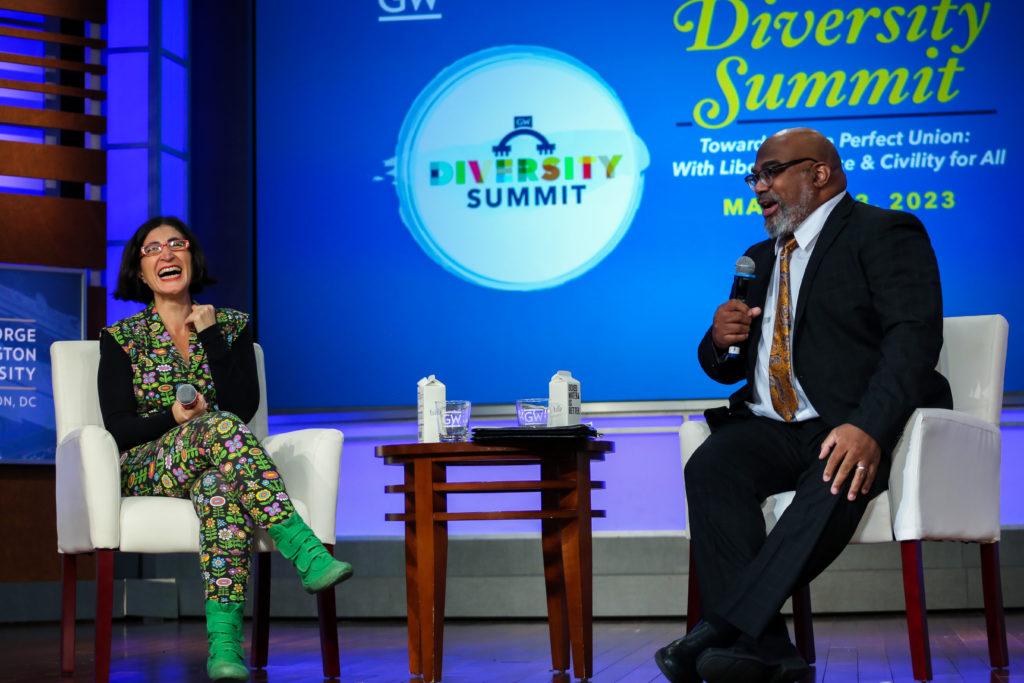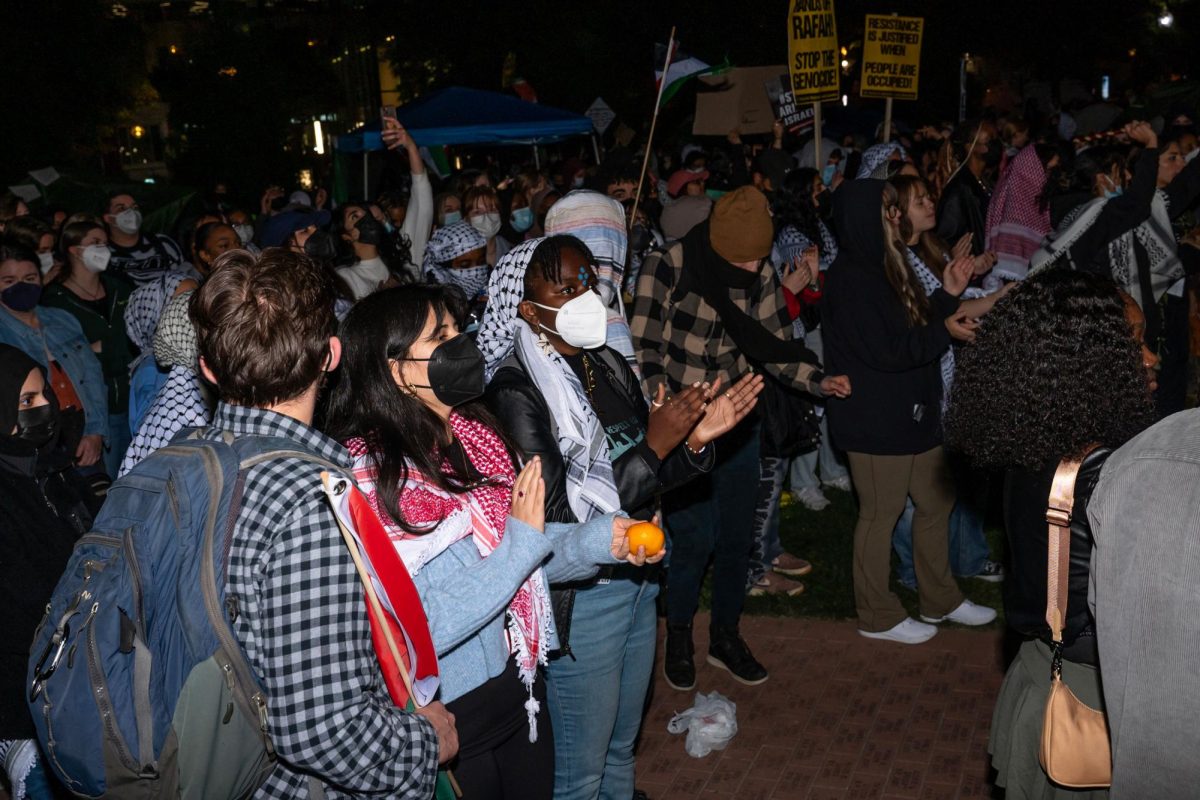The Office of Diversity, Equity and Community Engagement hosted the eighth-annual Diversity Summit last week with more than 50 discussion-based events that highlighted prominent social issues, like antisemitism and transgender rights.
The Diversity Summit made its in-person return to campus after hosting the events virtually since 2020 due to the pandemic with more than 100 students, faculty members and guest speakers hosting workshops and discussions from Wednesday to Friday. Program organizers said this year’s theme, “Toward a More Perfect Union: With Liberty, Justice and Civility for All,” focused on recent social issues within a campus lens, like the reversal of Roe v. Wade last summer and the onset of the pandemic.
The summit kicked off Wednesday evening with a keynote speech from Negin Farsad, an Iranian American comedian and social justice activist, who spoke to more than 50 students and faculty in the Jack Morton Auditorium about her experiences navigating her identity while growing up.
Farsad said she appreciated the University selecting her instead of an academic speaker to discuss diversity. She said she hopes the keynote talk builds upon the “camaraderie” of celebrating the University community’s diversity.
“I think there’s so much in the country right now that’s using the rhetoric of diversity against us, and I find it really frustrating,” Farsad said. “And I think that all of this stuff should be more fun.”
The summit’s 47 events ranged from unpacking the emotional undertones of art during Black Lives Matter protests, which associate professor of art therapy Jordan Potash and professional lecturer Lindsey Vance presented, to a discussion about experiences of ableism in academia with Emily Decker, a doctoral candidate and graduate assistant in GW’s philosophy in the field of counseling program.
Junior Vee Witzel, who participated in the Debate & Literary Society’s event on how to balance a university’s freedom of speech, said they hope attendants gained new information about the limits of free speech within the boundaries of campus and how to block hate speech from debates and conversations.
Students at the event debated topics of freedom of expression, delving into the University’s balance between embracing free speech and rejecting fostering hate speech or discrimination within University spaces.
“I hope that this will cause more students to think about what they think should be allowed on their campus, what they think they should be allowed to say and where they think the line is because it’s different for everyone,” Witzel said. “It’s something that we all need to think about.”
They said the Diversity Summit has offered minority students on campus a space to “freely express themselves” and educate other students, faculty and administrators on issues impacting their own community.
“A lot of the events that we’ve had this weekend at the Diversity Summit have been talking about what we can do better for marginalized communities and talking about what those marginalized communities need from the University,” Witzel said. “Hopefully the University as well as all of our faculty and all of our other students will be able to take this and make some real improvement from it.”
Rachelle Heller, a professor of computer science, said she presented Wednesday’s event “I’ve Been Untitled!” which discussed a societal tendency to neglect women’s doctoral titles in conversation. She said her title as a professor at the University is crucial to her identity and the dedication she has committed to her degree, and other women across professional fields should be given the same consideration as male professionals.
“That’s my title,” Heller said. “I worked hard for it, I studied hard, and so on, and it diminishes you if you’re not given your title. So it has to do with being credited for your work.”
Heller said the discussion, which included more than 10 students and community members, broke into small groups to discuss their own experiences with identity issues and stereotyping. She said she hopes attendees took away the importance of acknowledging people for who they are and what they’ve accomplished.
“It may seem like it doesn’t matter if you don’t acknowledge their accomplishment by their title,” Heller said. “‘This is dean so and so, this is doctor so and so.’ But as for the recipient, that hurts.”
Senior Gabriel Young, the president of the Philippine Cultural Society, joined PCS members in presenting a discussion titled “Know History, Know Self: Philippine American History” Friday. He said the event highlighted Filipino heritage and history – like the 1899 Philippine-American War, which fought for Filipino independence and resisted impending U.S. colonial rule – and the ways education on Filipino American history can educate Americans.
“Unfortunately, a lot of this history isn’t taught in classrooms,” Young said.
Young said last week’s event served as a continuation of the student organization’s past programming this academic year to educate students through events like a roundtable discussion in October that unpacked Filipino identity for Filipino-American Heritage Month.
“Our team is experienced in facilitating and teaching these topics, and so we just decided to transform that into the summit session,” Young said.
Young said he hoped Filipino students in attendance felt “empowered” to have conversations about identity and heritage and non-Filipino attendants developed a better understanding of the history of their Filipino peers and their country.
“America does not look like one race but is truly multiracial and multiethnic,” Young said. “And in order to understand that, it is not best to pit each other against each other but understand each other to find ways to collaborate and cooperate and organize together in the future.”







